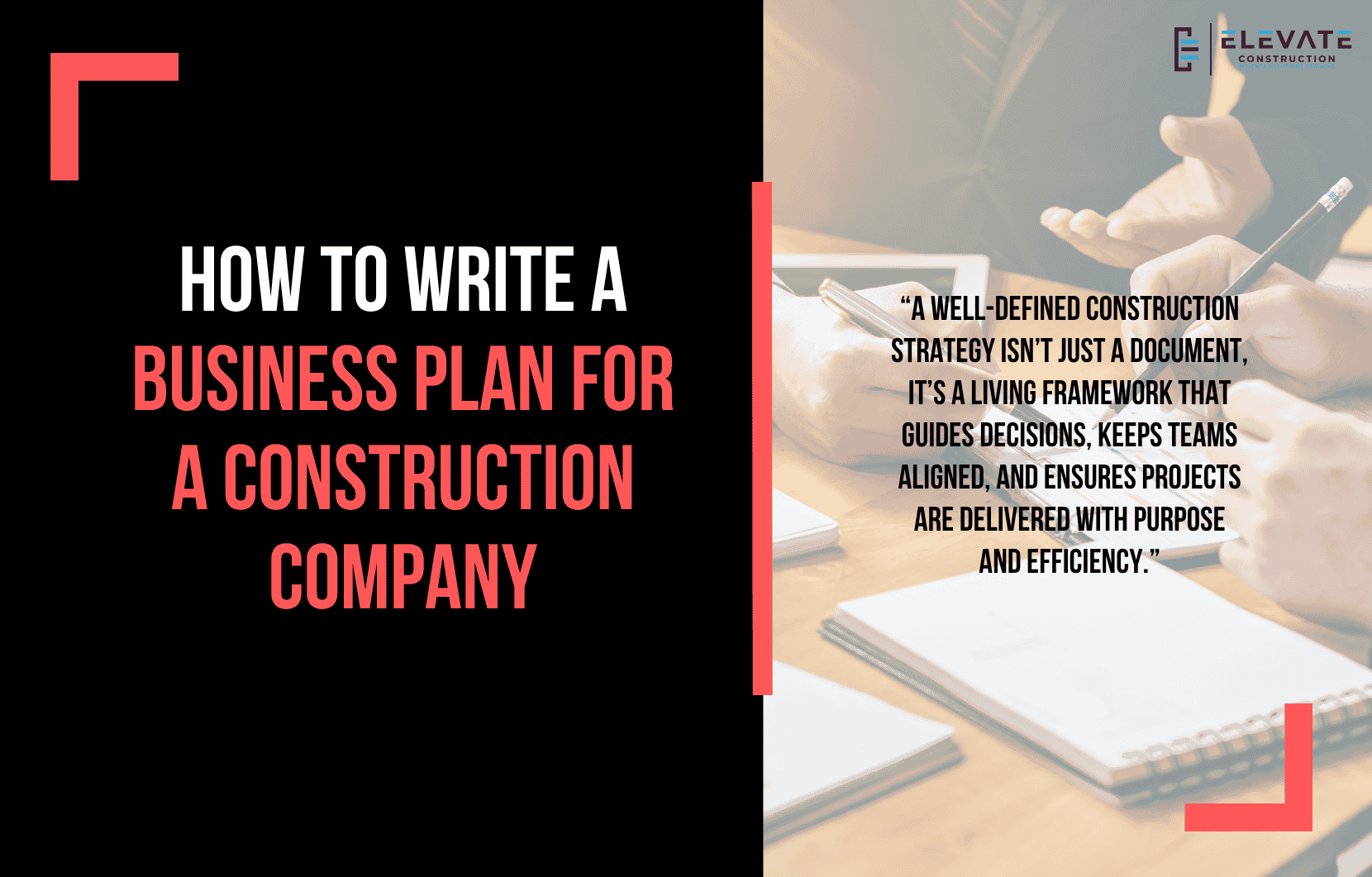How to Write a Business Plan for a Construction Company: The Essentials You Can’t Skip
I’ve covered how to write a business plan for a construction company before, but since then I’ve received more questions, helped more companies, and learned even more from the field. So, in this blog, I want to cut through the noise and share the absolute essentials you must have in place to make your business plan truly work.
I’ve worked with large companies, my going rate for big engagements starts at $500,000 per year for one-on-one consulting. I’ve taken on plenty of those projects, but these days, I only take one per year. Beyond that, through LeanTakt and other initiatives, I’ve worked with organizations of all sizes. For smaller companies, I often volunteer my help for free. So, trust me when I say these are the keys you need to get right.
- Visionary & Integrator:
When people think “business plan,” they often imagine a thick binder filled with market research, charts, and fancy reports. Those have their place, but the first thing I look for is this: Who’s your visionary and who’s your integrator?
The visionary sets the direction; the integrator makes it happen. These roles must be clearly defined and tested for compatibility. Without them, even the most polished plan will fall apart.
- The Clarity Document:
Your clarity document might just be the most important part of your plan. It outlines:
- Your mission, purpose, and core values.
- Where you want to be in 100, 10, 5, 3, and 1 year(s).
- Your specific market segments.
- Your marketing plan.
Gino Wickman calls this your VTO (Vision/Traction Organizer). A well-crafted clarity document wins half the battle before you even start.
- Right People in the Right Seats:
Jim Collins says the number one metric in your organization is having the right people in key seats. Your organizational chart should reflect what the business needs, not just what positions you already have filled.
Until over 90% of your key seats are filled by the right people, you have work to do.
- Define Your Approach:
Are you cheap and standardized? Or custom and expensive? Be clear about your red zone, the work you excel at, get paid well for, and enjoy.
From there, outline your standard way of delivering, both in marketing and operations.
- Shore Up Problems Before Scaling:
Every industry has common problems, yours included. Your plan should identify these issues, show how they’re being addressed, and include a strategy for training and enforcing solutions company-wide.
A well-trained and scalable operating system is the foundation for growth.
- Final Advice:
Whether you’re starting or scaling a construction company, you need:
- The right people in the right seats.
- A clear visionary and integrator.
- Expert help when needed.
The best companies hire consultants, get marketing support, and invest in their next step. The ones that fail often keep struggling in ignorance.
And don’t forget, cash flow is king. Have cash flow insurance, build your credit, and work with strong financial partners who’ll stick with you long term.
If you want to learn more we have:
-Takt Virtual Training: (Click here)
-Check out our Youtube channel for more info: (Click here)
-Listen to the Elevate Construction podcast: (Click here)
-Check out our training programs and certifications: (Click here)
-The Takt Book: (Click here)
Discover Jason’s Expertise:
Meet Jason Schroeder, the driving force behind Elevate Construction IST. As the company’s owner and principal consultant, he’s dedicated to taking construction to new heights. With a wealth of industry experience, he’s crafted the Field Engineer Boot Camp and Superintendent Boot Camp – intensive training programs engineered to cultivate top-tier leaders capable of steering their teams towards success. Jason’s vision? To expand his training initiatives across the nation, empowering construction firms to soar to unprecedented levels of excellence.
On we go


